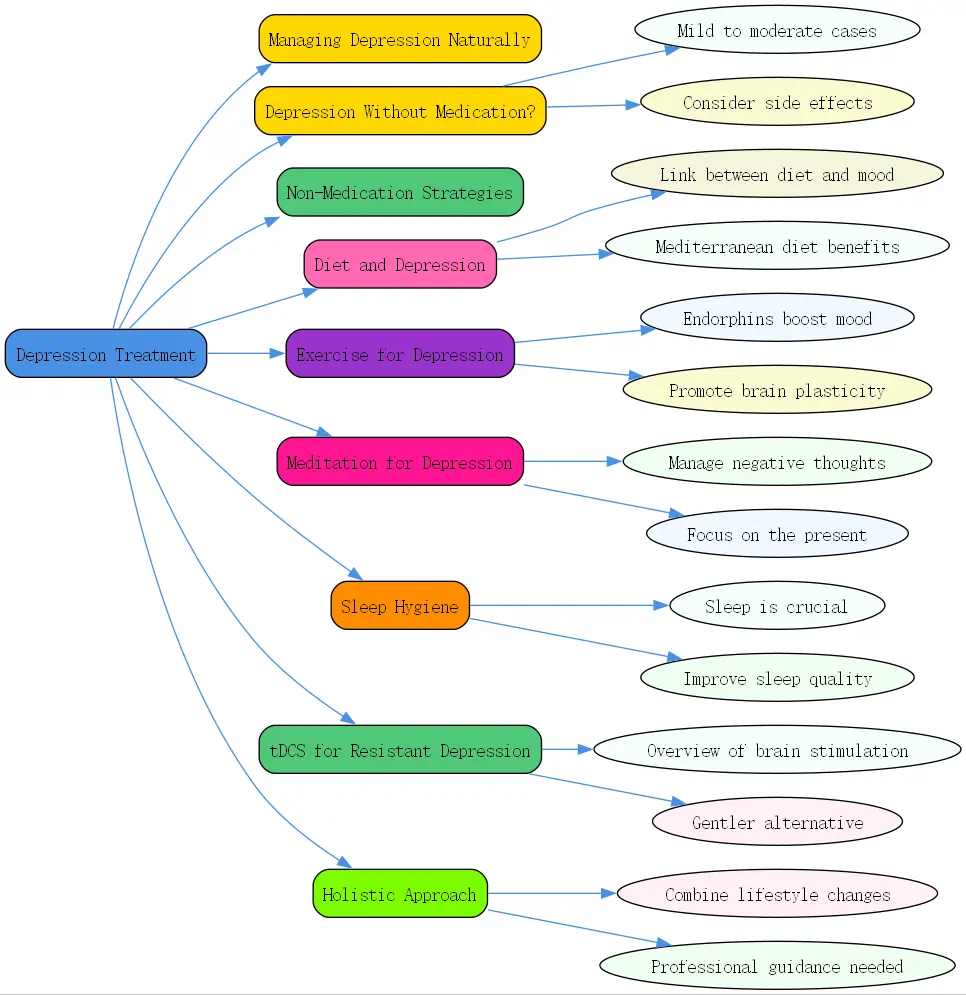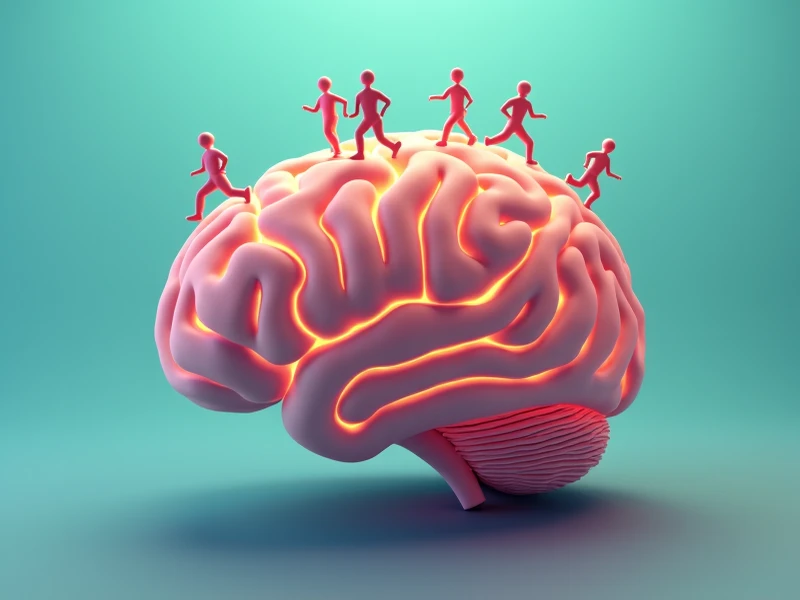Depression Treatment: Managing Depression Without Medication

In today’s health-conscious world, exploring depression treatment without resorting to medication is increasingly common. Concerns over the side effects associated with antidepressants are driving many to seek alternative therapies. Here at BrainTalking, we delve into effective strategies to manage depression naturally.
Is Depression Treatment Possible Without Medication?
For those wary of the adverse effects linked with antidepressants, the prospect of managing depression without medication is appealing. Not all cases of depression necessitate pharmaceutical intervention, particularly mild to moderate ones.
- Consideration of side effects: Many are hesitant to start antidepressants due to potential side effects.
- Potential for non-medical management: Lifestyle adjustments might suffice for those experiencing mild or moderate depression.
- Medical consultation: It’s crucial to consult a healthcare professional before ceasing any medication.
Effective Non-Medication Depression Treatment Strategies
Several lifestyle and behavioral modifications can substantially lessen depressive symptoms without involving pharmaceuticals.
Diet and Depression Treatment
The adage “”you are what you eat”” holds significantly true in the context of depression management.

- Link between diet and mood: High-fat, high-sugar diets are linked to higher depression rates. Conversely, a nutrient-rich diet supports mental health.
- Depression-combating foods: Incorporating green vegetables, fruits, and nuts, rich in vitamins and omega-3 fatty acids, can enhance mood and overall mental wellness.
- Benefits of the Mediterranean diet: Emphasizing whole grains, fish, and olive oil, this diet is particularly beneficial for those battling depression.
Exercise as a Natural Treatment for Depression

Physical activity is a potent ally against depression, with benefits that rival those of medication and therapy.
- Endorphins and mood enhancement: Exercise triggers the release of endorphins, which elevate mood and offer a sense of well-being.
- Brain plasticity: Regular physical activity promotes the growth of new brain cells, fostering resilience against depressive symptoms.
- Exercise recommendations: Engaging in light to moderate exercise, such as a 30-minute walk three to four times a week, can significantly alleviate depressive symptoms.
Meditation as a Treatment for Depression
Meditation offers a drug-free way to manage depressive episodes effectively.
- Managing negative thoughts: Through mindfulness, individuals learn to observe their thoughts without judgment, reducing the impact of negative patterns.
- Focus on the present: Techniques like focusing on breathing help anchor the mind in the now, combating the overthinking typical in depression.
- Meditation duration: Starting with short sessions, even 10 to 30 minutes daily, can yield substantial benefits.
Sleep Hygiene for Depression Treatment
Adequate sleep is crucial in managing and potentially reducing depression.
- Sleep as therapy: Quality sleep acts as an overnight therapy session, helping process and manage emotions better.
- Impact of poor sleep: Insufficient sleep can exacerbate or even initiate depressive symptoms.
- Sleep improvement tips: Establishing a consistent sleep schedule and creating a calming pre-sleep routine can enhance sleep quality significantly.

Transcranial Direct Current Stimulation (tDCS) for Treatment Resistant Depression Treatment
For those with treatment-resistant depression, Transcranial Direct Current Stimulation (tDCS) offers a beacon of hope.
- Overview of brain stimulation: tDCS uses a low-energy current to stimulate specific areas of the brain, enhancing mood and cognitive function.
- Mechanism of action: Unlike electroconvulsive therapy, tDCS utilizes a much weaker current, influencing how brain cells fire without causing dramatic seizures.
- Differentiation from harsher treatments: tDCS is a gentler alternative to more intense forms of brain stimulation, making it a viable option for many.
Conclusion: A Holistic Approach to Depression Treatment for Optimal Results
Adopting a holistic approach by combining dietary changes, regular physical activity, meditation, and appropriate sleep hygiene can be profoundly transformative in treating depression. At BrainTalking, we encourage you to explore these avenues under the guidance of a healthcare professional.
Q: Can lifestyle changes truly replace medication in the treatment of depression?
A: While lifestyle changes alone may not be sufficient for everyone, they can significantly reduce symptoms and are especially effective in cases of mild to moderate depression. These adjustments promote a healthier overall lifestyle which naturally enhances mental health. However, it’s crucial to consult with a healthcare provider to create a tailored treatment plan.




